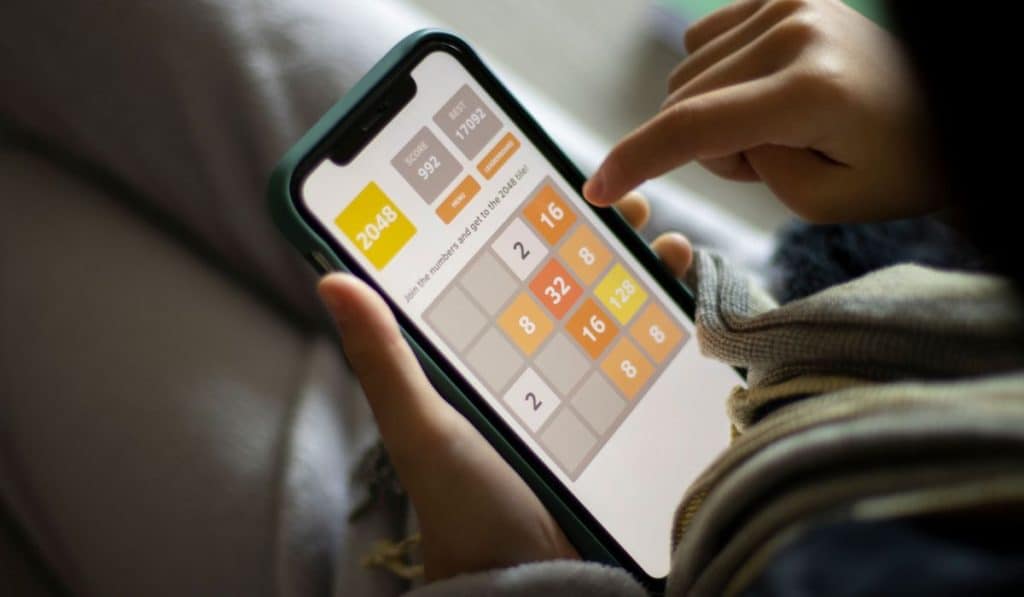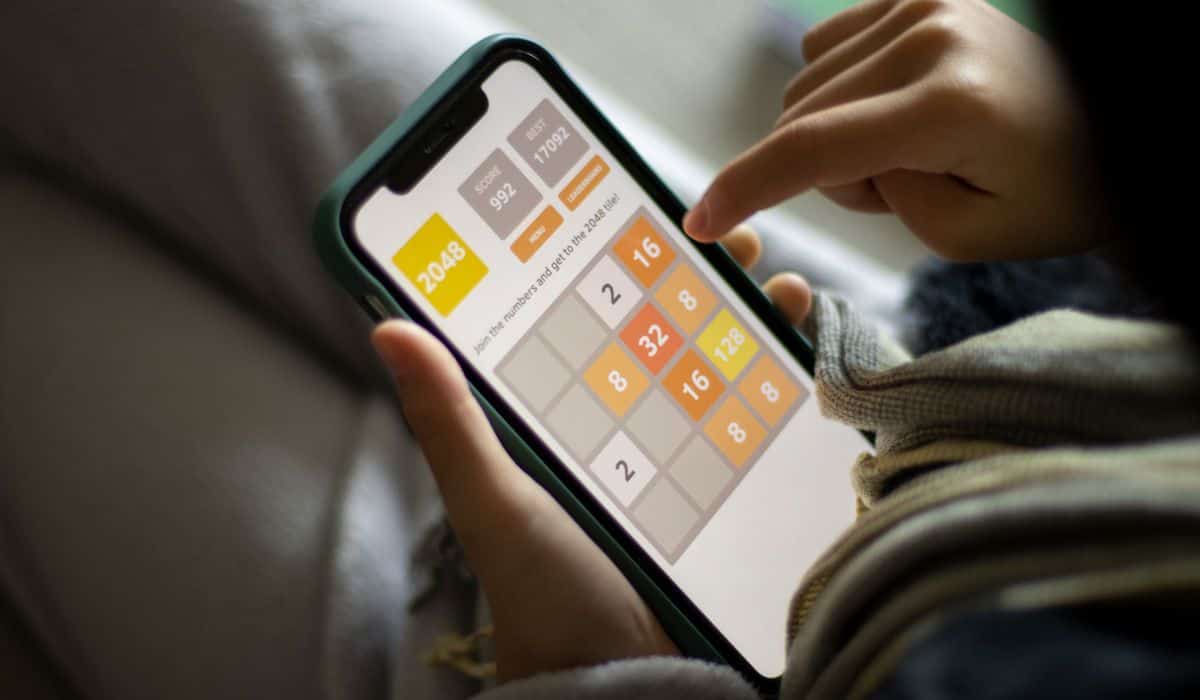Mathematics was the 35th most popular major in the 2020-2021 academic year in the United States.
Besides the several mathematics programs for undergraduates and higher degrees, it is a prerequisite for many college courses.
Is there anything interesting in mathematics beyond the complex calculations and formulae? If this is a question you often ask, the answer is yes.
Behind the seemingly complicated problems at different school and college levels are fascinating hobbies. The realm of numbers is wide, full of thrilling adventures and mind-bending puzzles.
Explore the seven hobbies related to mathematics outlined in this post. You will discover interesting games of numbers that will captivate and challenge math enthusiasts of all ages.

1. Recreational Mathematics
Recreational math refers to any game, activity, or puzzle that improves your math skills. If you love playing Sudoku and solving brain teasers, you are a recreational math veteran.
Other examples of recreational math include card games, Monopoly, and any puzzle that requires you to apply mathematical formulae.
While solving these puzzles and card games, you often apply common operations like addition and subtraction.
Recreational math has many benefits. They include:
- Motivation. Difficult puzzles motivate students to learn more math so that they can find a solution.
- Makes learning math more fun. Students are under no pressure to submit solutions to puzzles and games. Instead, they solve them at their own pace. This makes learning fun.
- It fosters self-guidance. Students learn how to solve problems without supervision.
- Improves performance. Recreational math improves learners’ speed and accuracy when solving problems. This results in better performance in class.
You can find recreational math puzzles and brain teasers on different websites for free. These games start from simple to complex problems.
You start with simple puzzles to qualify for complex ones. And in finding the solutions, you ignite creativity and critical thinking.

2. Solving Puzzles
Solving puzzles is fun and relaxing. You get thrilled by cracking jigsaws and other puzzles.
Furthermore, you develop the following skills in the process.
- Reasoning. Putting pieces of a puzzle together requires cognitive, visual, and spatial reasoning.
- Analyzing. You have to analyze the pieces and determine where to put them.
- Problem-solving. Putting pieces in the right position involves visual calculations.
- Sequencing and logical thought. You have to arrange the pieces in the right order to succeed.
- Deduction.
- Hand-eye coordination.
Some puzzles involve spatial arrangement. To get them right, you have to concentrate.
Therefore, puzzles increase concentration and boost your creativity. Increased brain function is a recipe for sharpening your memory.
Many puzzles are available on the market today and finding them is easy. The common ones are Flat 2D puzzles, 3D puzzles, Unique Jigsaw, and Murder Mystery puzzles.
Online stores such as Amazon, Walmart, Target, and Shopko have puzzles from different brands. This makes your favorite puzzle a click away.
Research shows that playing puzzle games and other cognitively challenging activities reduces the chances of developing Dementia and Alzheimer’s disease.

3. Mathematical Art
You can use mathematical concepts to create eye-catching, aesthetically pleasant, and thought-captivating pieces.
Simply put, mathematical art makes the world beautiful.
This fascinating hobby takes different forms. Among them are intricate geometric designs and fractal patterns that enable you to explore different concepts visually.
Mathematical art enables you to view concepts creatively. This makes complex concepts simple to internalize and apply.
For example, an architect applies geometry to create visually stunning structures. A mason can easily interpret architectural designs since they often involve constructing repeating patterns.
If you make mathematical art your hobby, you will benefit in the following ways:
- Improved creativity and expression. You can express ideas through appealing expressions.
- Explore complex mathematical concepts from a fresh perspective.
- The beauty of unique designs connects you to the public. This makes math relevant to everyone.
- Personal satisfaction as you transform abstract ideas into reality through artistic techniques.
- Accessible through varying mediums such as painting, digital art, and sculptures.

4. Mathematics Games
Mathematics games involve practicing math skills using fun interactive content.
Through them, you explore fundamental number concepts, such as counting sequence, computation, and one-on-one correspondence.
While playing math games, you explore different areas which deepen your understanding. For example, you learn more about number combinations when playing Quento.
Here are the benefits of math games.
- You develop computational fluency.
- You gain strategic mathematical thinking as you look for different strategies to solve problems.
- Continuous playing enables you to develop familiarity with the number system. This enhances a deeper understanding of concepts and operations.
- As a student, you’re able to practice math without your teacher’s supervision.
- Parents can learn about their children’s ability to solve math problems and spot their weaknesses and strengths.
There are many math games for different ages, starting from elementary to college levels. Lower-level games are simpler and involve addition and subtraction.
Bingo and 101 points are examples of math games for elementary school kids.
Prime Fighter, Cartesian Claw, and Swipe Correct are complex and suitable for higher levels.
All math games improve your analytical thinking. Therefore, you can start with simpler games to gain skills before trying complex ones.

5. Mathematical Reading and Writing
Mathematical reading and writing involve engaging with math literature, such as books, articles, and research papers.
You can explore new ideas and express them through mathematical writing.
This can be a great hobby for math lovers and enthusiasts. You can do the following to improve your math skills and have fun:
- Choosing specific areas that interest you and reading about them in books, journals, and online sources.
- Keeping a math journal or blog where you list new ideas. This enhances your understanding of simple to complex concepts.
- Staying updated with developments in mathematics. You can subscribe to newsletters and other online resources to broaden your knowledge.
- Join mathematical forums and participate in discussions. This helps you understand tough concepts, share ideas, and connect with other math lovers.
If you are a tutor, math writing can help you gauge your learners’ understanding of different concepts. Besides, you can use writing to explain complex formulae to your class.
Students who enjoy reading and writing can expand their knowledge of the application of math in solving real-life problems.

6. Coding and Programming
Coding and programming are valuable tools for learning mathematics.
Coding involves the breakdown of complex problems into smaller steps before solving them. This process enhances critical and logical thinking. It also improves your problem-solving skills.
Programming, on the other hand, involves performing different tasks on a computer through a set of instructions. It fosters logical thinking and problem-solving.
If you love coding and programming, they can improve your math skills by:
- Thinking logically before you solve problems.
- Visualizing abstract mathematical concepts and applying them to problem-solving.
- Encouraging creativity and pattern recognition.
- Interpreting data structure to help you solve problems in probability and statistics.
Unlike other hobbies, which are beginner-friendly, coding and programming require basic knowledge before you can choose them as your hobby.
However, even simple coding can improve your approach to math.

7. Mathematical Modeling
Mathematical modeling entails creating a mathematical representation of a real-world scenario. This can help you predict the outcome of an event or provide insight.
You can use mathematical modeling to analyze basic concepts and complex ones. Whether you want to get solutions in arithmetic, algebra, or geometry, modeling works well.
Examples:
- In 1781, William Herschel discovered the planet Uranus. A model was used to air the slight discrepancies of Newton’s work.
- Arithmetic concepts are useful in social sciences when predicting the trend of human economies.
- Mathematical principles are applied in biological science to study the structure of different organs.
You can also apply mathematical modeling in analyzing statistics and representing the relationship between different variables in real life.
Parting Shot
Mathematics offers you many captivating and fascinating hobbies.
Contrary to the popular opinion that math is complex, some of the hobbies above are simple and friendly for all ages.
Enjoy the beauty that comes with mathematical art, fascinating discoveries from coding and programming, and fun from playing math games.
Furthermore, these hobbies have available and affordable requirements.
Mathematical hobbies nourish intellectual growth, inspire our problem-solving approach, and ignite creativity.
Which hobby sparks your interest from the list above? Try it now and start enjoying mathematics more.
Resources
- https://ce.fresno.edu/news/what-is-recreational-math-and-how-can-it-help-students/
- https://www.thesurlyhousewife.com/why-jigsaw-puzzles-are-the-best-hobby/
- https://www.educationworld.com/a_lesson/Mathematical-Art-Teaching-Students-to-Create-Art-Using-Math-Principals
- https://www.edutopia.org/article/reading-and-writing-math-class/
- https://thinkchildlabs.com/f/how-does-coding-help-in-maths
- https://m3challenge.siam.org/resources/whatismathmodeling
- https://www.mathscareers.org.uk/real-world-examples-of-mathematical-modelling/





